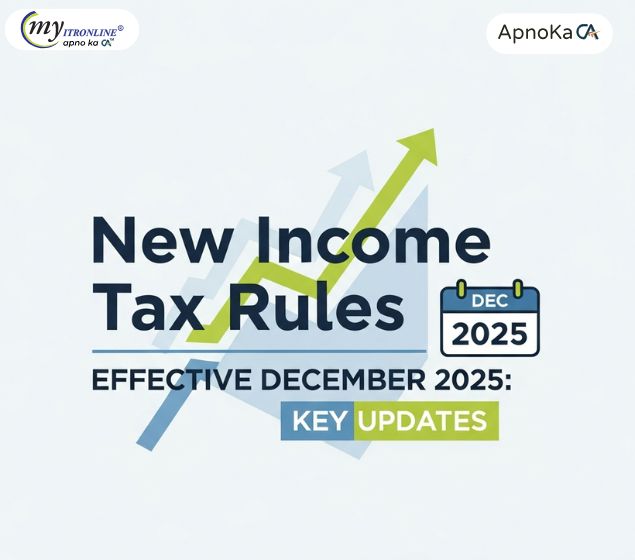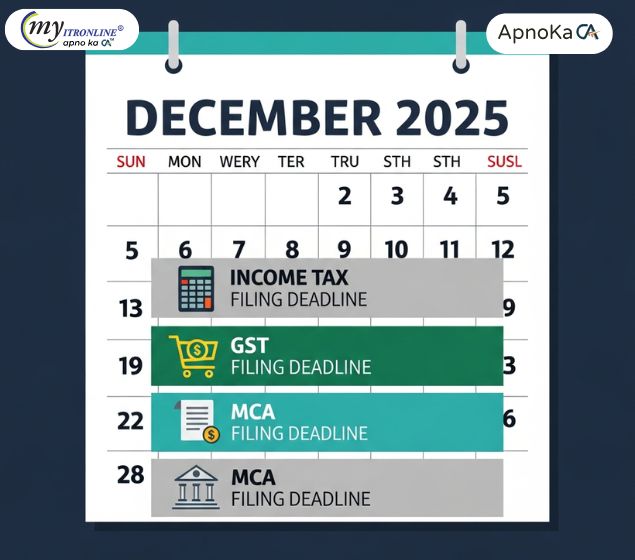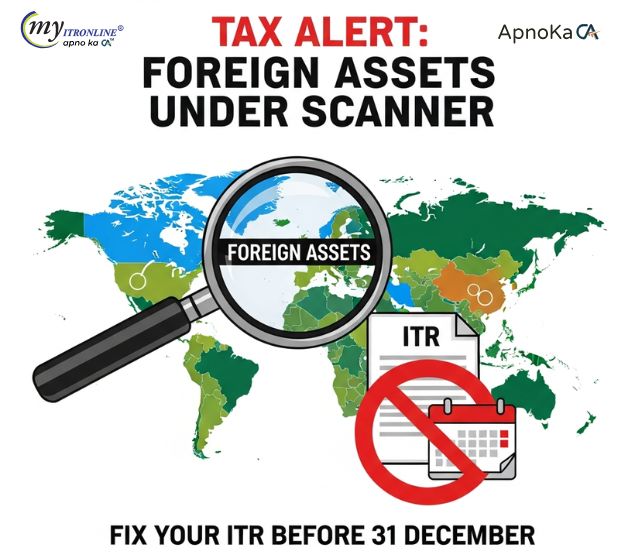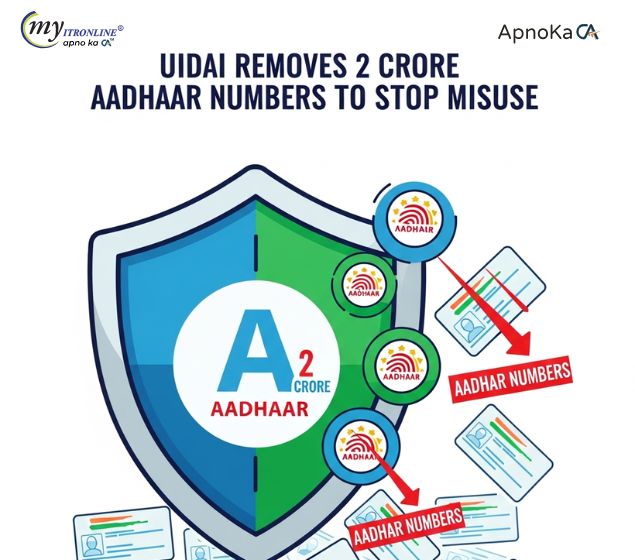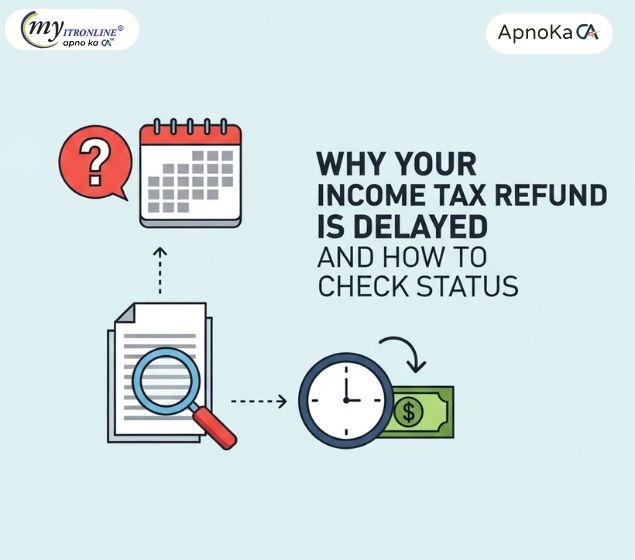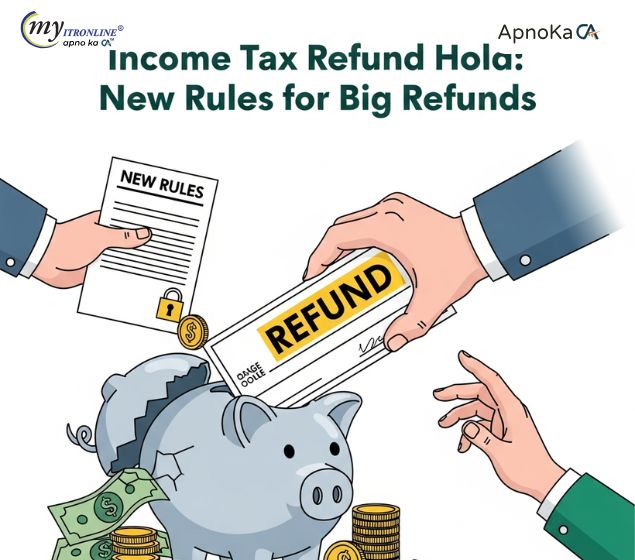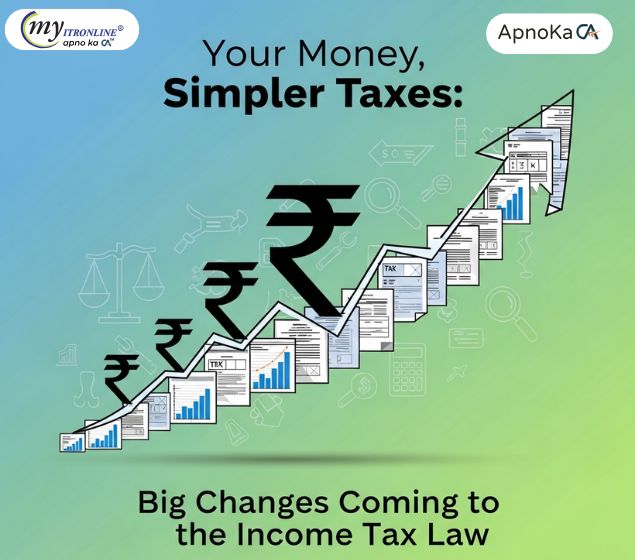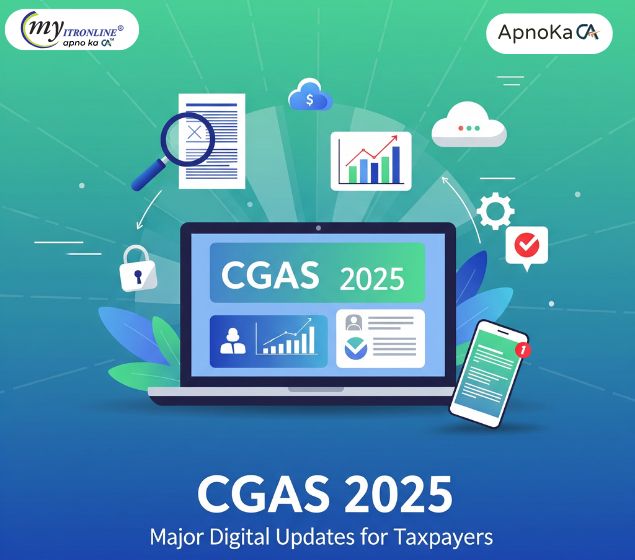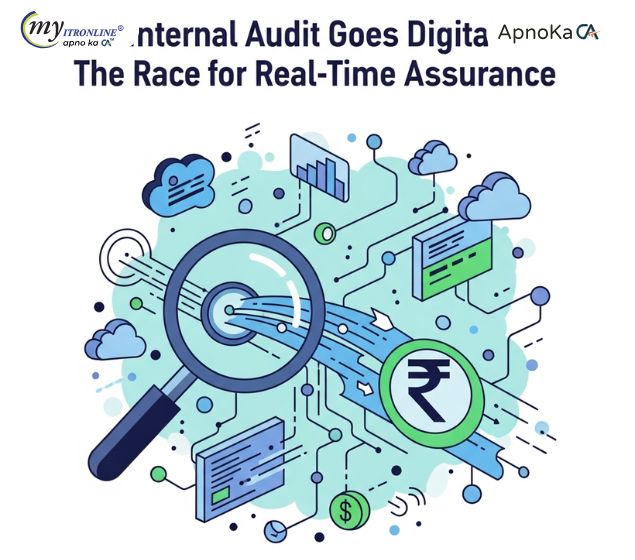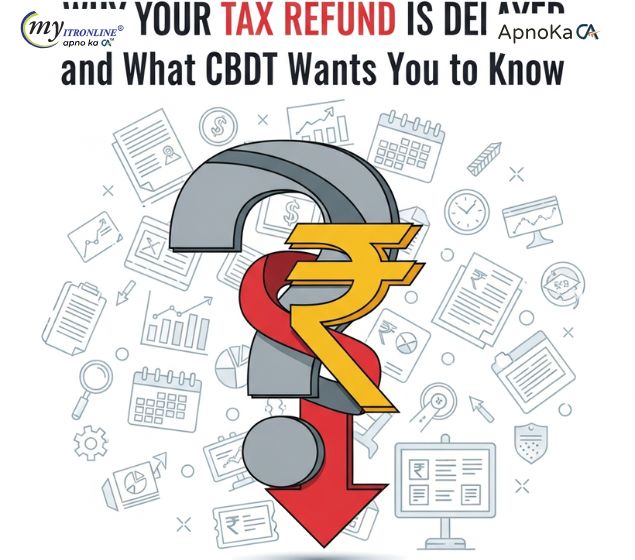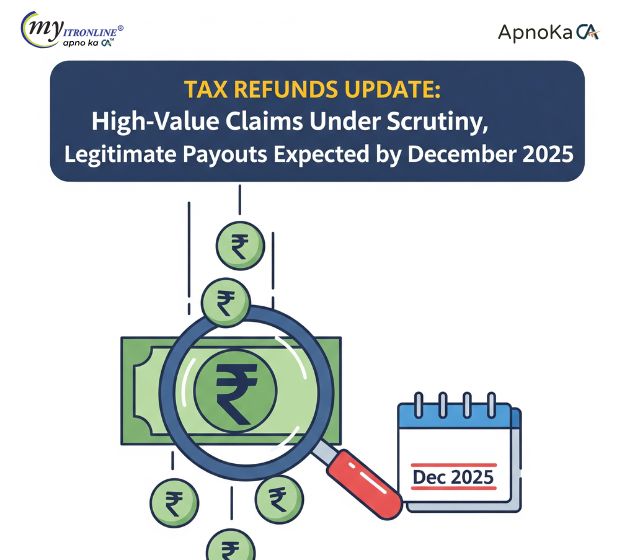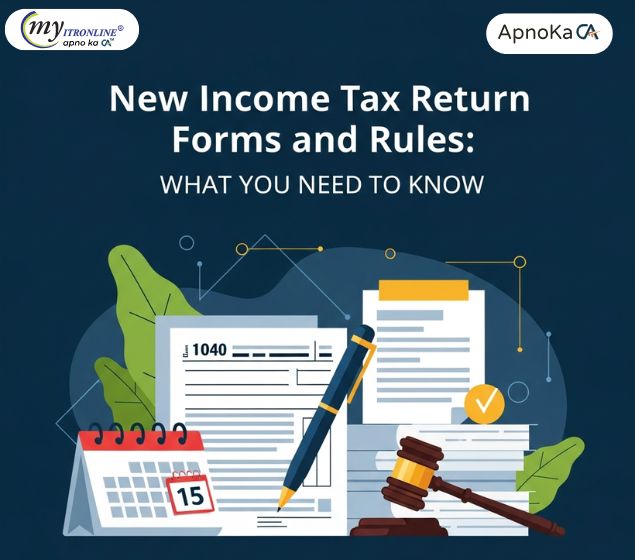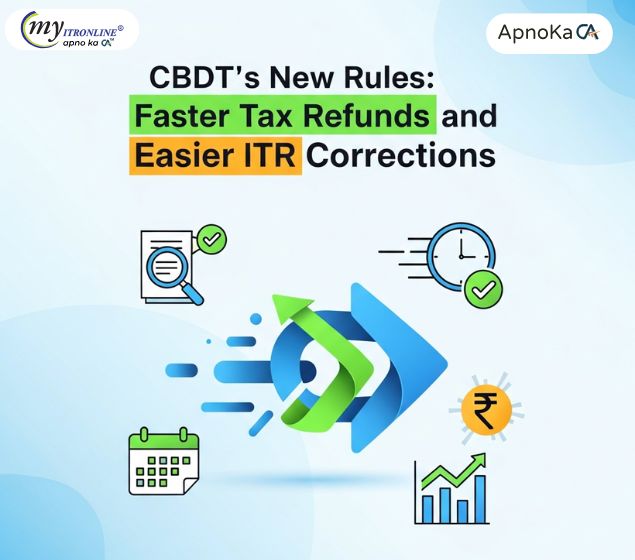Major Changes to India's Tax Audit (Section 44AB) for 2025
This guide explains the updated Guidance Note on Tax Audit under Section 44AB of the Income-tax Act, 1961, for the Assessment Year 2025-26 (Financial Year 2024-25). It clarifies who needs a tax audit, points out key changes in Form 3CD, including new clauses for digital transactions, MSME reporting, and buybacks. It also outlines the audit process, lists important due dates, and details the penalties for non-compliance. The guide offers best practices for taxpayers to help ensure smooth audits and strong tax compliance in India.
.jpg )
The Indian tax system is always changing. Updates aim to improve transparency, make compliance easier, and reduce tax evasion. A key provision is Section 44AB of the Income-tax Act, 1961. This section requires a tax audit for certain categories of taxpayers. The Institute of Chartered Accountants of India (ICAI) regularly updates its "Guidance Note on Tax Audit" to help both chartered accountants and taxpayers.
With the Assessment Year (AY) 2025-26 (Financial Year 2024-25) underway, businesses and professionals must grasp the revised provisions and their effects. This blog examines the revised Guidance Note on Tax Audit under Section 44AB, with updates for 2025.Click Here
What is a Tax Audit under Section 44AB?
A tax audit required by Section 44AB involves examining and verifying the financial records of a business or profession. A qualified Chartered Accountant (CA) conducts this audit to ensure that:
- The financial statements accurately represent the business's financial position.
- The income reported, deductions claimed, and taxes paid comply with the Income-tax Act, 1961.
- The taxpayer has proper books of accounts as required by law.
- Any discrepancies, errors, or compliance issues are identified and reported using the prescribed format (Form 3CA/3CB and 3CD).
In essence, it serves as a check to ensure proper tax compliance and reduce under-reporting of income or over-claiming of expenses.
Who Needs a Tax Audit under Section 44AB for AY 2025-26?
Section 44AB applies based on the turnover or gross receipts of the taxpayer and whether they have chosen any presumptive taxation scheme. Here’s the breakdown for AY 2025-26 (FY 2024-25):
1. For Businesses:
- General Limit: A tax audit is required if the total turnover or gross receipts exceed ₹1 crore in the financial year.
- Increased Limit for Digital Transactions: The limit rises to ₹10 crore if:
- The total cash received is 5% or less of all receipts.
- The total cash paid is 5% or less of all payments.
This rule encourages digital transactions and lessens the compliance burden for cashless businesses.
2. For Professionals:
- General Limit: A tax audit is necessary if gross receipts exceed ₹50 lakhs in the financial year.
- Professionals do not benefit from an increased limit for digital transactions under Section 44AB.
3. For Taxpayers Using Presumptive Taxation Schemes (Sections 44AD, 44ADA, 44AE):
The rules are a bit different:
- Section 44AD (Eligible Businesses):
- If a taxpayer declares income lower than the presumptive rate (8% of gross turnover or 6% for digital transactions) and their total income exceeds the basic exemption limit, a tax audit is necessary.
- If a taxpayer opted for Section 44AD in any of the past five years but chooses not to in the current year, and their total income exceeds the basic exemption limit, a tax audit is required.
- Section 44ADA (Eligible Professionals):
- If a professional reports income lower than the set presumptive rate (50% of gross receipts) and their total income exceeds the basic exemption limit, a tax audit is needed.
- Section 44AE (Businesses of Plying, Hiring, or Leasing Goods Carriages):
- If a taxpayer reports income lower than the presumed income under Section 44AE and their total income exceeds the basic exemption limit, a tax audit is required.
Important Note: Even if a business or profession is already under audit from another law (e.g., Company Law), they might still need a tax audit under Section 44AB if their turnover exceeds the limits. However, the same auditor can conduct both audits to avoid duplication.
Key Changes and Updates in the Revised 2025 Guidance Note (and Form 3CD):
While an official "Revised 2025" Guidance Note from ICAI will detail all changes, some trends and expected updates for AY 2025-26 include:
- More Reporting of Digital Transactions: There will be an increased focus on digital payments. Auditors may need to detail cash versus digital transactions more closely. The 95% cashless transaction limit for the ₹10 crore threshold will be scrutinized.
- Simplified Form 3CD Clauses: Recent changes aim to make some clauses simpler to ease the compliance burden, especially for smaller entities.
- Greater Emphasis on Internal Financial Controls: The 2025 updates may require auditors to include more detailed observations on taxpayers' internal financial controls to enhance financial reporting quality.
- New Disclosure Requirements: Expect new clauses or more detailed reporting for certain transactions, including:
- Income from Broadcasting & Sport-Related Events: A new Clause 44BBC has been added under Clause (12) of Form 3CD for this purpose.
- Regulatory Settlements: Taxpayers may need to report expenses for settlements involving law violations, including penalties paid.
- MSME Reporting: There will be enhanced disclosures about payments to Micro, Small, and Medium Enterprises (MSMEs) under the MSME Development Act, 2006, including amounts due and interest on late payments.
- Updated Loan & Deposit Reporting: Clause 31 has improvements, including a new drop-down selection and a structured coding system for various transaction types.
- Buyback Transactions: A new Clause 36B requires reporting buyback transactions under Section 2(22)(f), detailing amounts received and costs of acquiring shares.
- Clarity on Presumptive Taxation: The Guidance Note will likely clarify issues related to presumptive taxation schemes, especially for taxpayers opting out.
- Guidance on Specific Deductions/Disallowances: Updates on new or changed sections relating to deductions and disallowances will be included, ensuring auditors report correctly.
- Focus on Documentation: The Guidance Note will stress the importance of keeping thorough documentation for financial transactions, especially those affecting tax liability.
Scope and Process of a Tax Audit:
The tax audit steps typically include:
- Appointment of Auditor: The taxpayer hires a qualified Chartered Accountant to conduct the audit.
- Pre-Audit Planning: The CA understands the business's nature, accounting system, and relevant tax provisions.
- Review of Financial Statements: A thorough review of the Balance Sheet, Profit & Loss Account, and Cash Flow Statement occurs.
- Examination of Books of Accounts: A detailed check of ledgers, journals, cash book, bank statements, sales and purchase registers, fixed asset registers, and inventory records takes place.
- Verification of Supporting Documents: This includes checking invoices, vouchers, bank statements, TDS certificates, and tax payment challans.
- Review of Tax Compliance: Compliance with tax laws, including TDS/TCS rules, GST, and others is assessed.
- Reporting of Observations: The auditor identifies discrepancies and non-compliance issues.
- Preparation of Audit Report: The CA prepares the audit report using Form 3CA/3CB and 3CD.
- Form 3CA: Used if the taxpayer's accounts are already audited under another law (e.g., Companies Act).
- Form 3CB: Used if the taxpayer's accounts are not audited under another law.
- Form 3CD: This detailed statement is part of both Form 3CA and 3CB and contains over 40 clauses requiring information about the taxpayer's business, such as capital structure, loans, fixed assets, and tax adjustments.
- Submission of Report: The tax audit report, signed by the CA, is uploaded to the online e-filing portal. The taxpayer reviews, accepts, and signs it digitally.
Due Dates for Tax Audit for FY 2024-25 (AY 2025-26):
- Due Date for submitting the Tax Audit Report (Form 3CA/3CB & 3CD): September 30, 2025.
- Due Date for Filing Income Tax Return (if audit applies): October 31, 2025.
Note: For taxpayers involved in international or certain domestic transactions, the ITR filing due date is November 30, 2025, and the audit report may also align with this date.
Penalties for Non-Compliance:
Not following the tax audit rules can lead to significant penalties under Section 271B of the Income-tax Act:
- Penalty: 0.5% of the total sales, turnover, or gross receipts, or ₹1,50,000, whichever is lower.
Other Consequences:
- An income tax return filed without a required audit report may be deemed defective or not filed.
- Some deductions may be disallowed.
- Increased scrutiny by tax authorities in later years.
- Penalties for specific audit deficiencies or incomplete disclosures in Form 3CD may also happen.
However, penalties may be waived if the taxpayer shows "reasonable cause" for the failure, such as natural disasters, unexpected loss of accounts, or other genuine difficulties.
Best Practices for Taxpayers:
To ensure a smooth tax audit and avoid penalties, taxpayers should:
- Maintain Proper Books of Accounts: Keep accurate and up-to-date records of all transactions.
- Organize Supporting Documents: Make sure all invoices, vouchers, bank statements, and other relevant documents are accessible and properly filed.
- Reconcile Accounts Regularly: Conduct periodic bank and internal reconciliations to spot and fix discrepancies early.
- Understand Presumptive Taxation: If choosing presumptive taxation, fully understand its effects and ensure compliance with set rates.
- Engage a Qualified CA Early: Hire a Chartered Accountant well ahead of deadlines to allow enough time for the audit.
- Address Auditor Queries Promptly: Respond quickly to any questions from the auditor and provide necessary information.
- Stay Updated: Keep informed about the latest changes to the Income-tax Act and the Guidance Note on Tax Audit.
Conclusion
The Guidance Note on Tax Audit under Section 44AB (Revised 2025) is vital for both taxpayers and Chartered Accountants. It simplifies the tax audit process, promotes transparency, and ensures compliance with the Income-tax Act. By understanding the rules, scope, key changes, and deadlines, businesses and professionals can navigate tax audit requirements effectively, contributing to a more compliant and efficient tax system in India. Careful planning and thorough record-keeping are essential for successful tax compliance.
FILING YOUR INCOME TAX RETURN F.Y 2024-25 (A.Y. 2025-2026) WITH MYITRONLINE
The income tax filing deadline is right around the corner. If you haven’t filed yet, do it today with Myitronline! Avoid last minute rush and file your tax return today on MYITRONLINE in Just 5 mins.(www.myitronline.com)
If you are looking for eCA assistance to file your income tax return/ GST, you can opt for MYITRONLINE eCA assisted plan starting
Upload Salary Individual Form-16
If you have any questions with filing your tax return, please reply to this mail. info@myitronline.com OR call 9971055886,8130309886.
Note-All the aforementioned information in the article is taken from authentic resources and has been published after moderation. Any change in the information other than fact must be believed as a human error. For queries mail us at marketing@myitronline.com
Krishna Gopal Varshney
An editor at apnokacaKrishna Gopal Varshney, Founder & CEO of Myitronline Global Services Private Limited at Delhi. A dedicated and tireless Expert Service Provider for the clients seeking tax filing assistance and all other essential requirements associated with Business/Professional establishment. Connect to us and let us give the Best Support to make you a Success. Visit our website for latest Business News and IT Updates.
Leave a reply
Your email address will not be published. Required fields are marked *Share this article
Krishna Gopal Varshney, Founder & CEO of Myitronline Global Services Private Limited at Delhi. A dedicated and tireless Expert Service Provider for the clients seeking tax filing assistance and all other essential requirements associated with Business/Professional establishment. Connect to us and let us give the Best Support to make you a Success. Visit our website for latest Business News and IT Updates.
View articles








